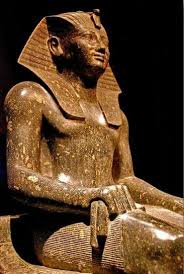The Oppression of Isra’el
1: 8-22

Isra’el’s blessing, however, became Pharaoh’s problem. The new king, who did not know about Joseph, was Ahmose, who expelled the Hyksos invaders from Egypt and founded the Eighteenth Dynasty, which was probably the most brilliant age in all Egyptian history. The Eighteenth Dynasty lasted from 1570 to 1090 BC, beginning as Egypt reached its height of glory and ending in one of its weakest positions. Egyptian history will not tell what caused its downfall from such glorious heights. But ADONAI explains it in great detail here in the first third of Exodus. Ahmose did not want the Israelites to become so strong and numerous that they might win their freedom by joining forces with the Semitic Hittites and fight against Egypt. Pharaoh’s plan of oppression had three phases, each more ruthless than the one before it.3
Already at this early stage we see the real antagonist in the book of Exodus, which will become much more pronounced later on. This is not a battle of Isra’el versus Pharaoh, or even Moses verses Pharaoh, but of ADONAI verses Pharaoh. The Egyptian king, as we will see in the following chapters, is presented as an anti-god figure; he repeatedly places himself in direct opposition to God’s redemptive plan, and this behavior is already anticipated here. Pharaoh’s sin was not simply making slaves of God’s people. This is merely his solution to get at a much more basic problem: The Israelites are becoming too numerous, and are as such, a possible military threat to Egypt.4 When he tried to reduce their number even though the LORD said He would make them very fruitful (Genesis 17:6), he violated universal spiritual principles: Anyone who chooses to be a friend of the world becomes an enemy of God and it is a dreadful thing to fall into the hands of the living God (James 4:4 and Hebrews 10:31).



Leave A Comment